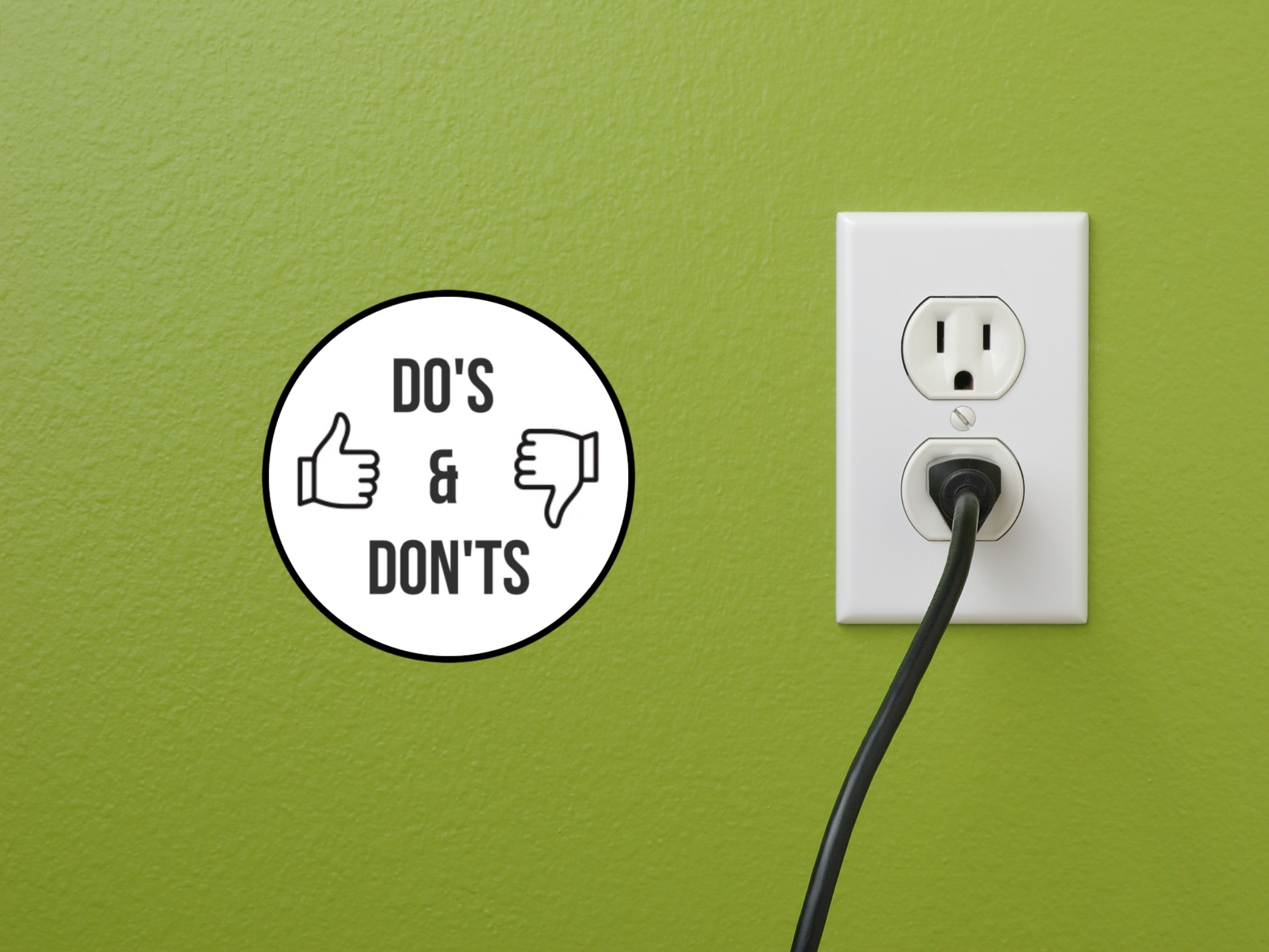Do's and Don'ts: Household Electrical Safety
Are you using electricity safely? Here's what you should and shouldn't be doing.
Published:

Electricity is safe and reliable, but it can be hazardous if used improperly. Here are some things you should and shouldn't do in your home when working with electricity or using powered devices.
Do:
Shut off power before performing electrical work. Shut off power at the circuit before performing any work on outlets, switches, light fixtures and other electrical equipment.
Install ground-fault circuit interrupter (GFCI) outlets. GFCIs monitor current flow in a circuit and shut it off if an imbalance is detected. Install them in the kitchen, bathrooms, outside and other potentially damp areas.
Use safety covers on unused outlets. Children can suffer serious shock or burn injuries if they insert objects into outlets. If children are present, install safety covers on all unused outlets.
Check for frayed, cracked or otherwise damaged electrical cords. Damaged cords may have exposed live wires that can be shock and fire hazards. Replace any damaged cords or replace equipment.
Unplug small appliances when not in use. Even when they're turned off, plugged-in devices can be a shock hazard if they fall into water. Unplug all small kitchen and bathroom appliances (such as blenders or hair dryers) when you're not using them.
Don't:
Use extension cords on a long-term basis. Extension cords are not as safe as permanent house wiring or cords that go with equipment. Install more outlets if necessary, or move the powered device closer to an outlet.
Overload electrical circuits. Overloaded electrical circuits are a major cause of residential fires. To prevent circuit overloads, make sure all major appliances are plugged into a single wall outlet, and avoid plugging a lot of devices into one outlet.
Use indoor extension cords outside. Cords intended for indoor use are not made to withstand the climate and mechanical stresses of outdoor conditions. Use only weather-resistant extension cords marked for outdoor use.
Locate powered electrical cords under rugs or furniture. Pressure from heavy weight or foot traffic can damage cords, creating a fire hazard. Move cords or furniture so that the cords are not covered.
Plug generators directly into an outlet or circuit panel. The electricity generated can backfeed to outdoor power lines, where it can injure or kill utility service personnel. Permanent standby generators can be connected to the home by an automatic transfer switch, which can prevent this from happening.
Is your home wiring safe? Signs of trouble include flickering lights and frequently blown circuits. If you suspect unsafe wiring conditions or other electrical problems, hire a qualified electrician to inspect your home.
